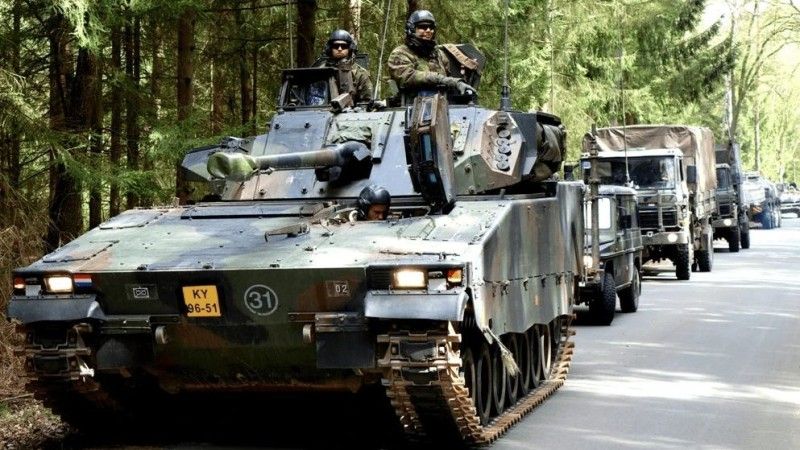Defence Policy
European Commission to Scrutinize Tender-Less Defence Procurement?

During the upcoming meeting, the European Parliament is to discuss proposals for changes in the EU treaties. Expert at Sobieski Institute, legal counsel Filip Seredyński claims that the above may mean that the EU may aim to cut short any procurement dictated by the basic national security interest, outside of the scope covered by the public procurement law, and also to eliminate any offset deals.
The amendments to the treaties prepared by the European Parliament are to be discussed on Tuesday.
Marcin Kulasek, Secretary General for Nowa Lewica, and Deputy Head of the Parliamentary Defence Commission during the last term, claims that solutions that heighten the levels of control over defence procurement are worth considering, but in his opinion, national-level solutions should come first.
„Resolution by the European Parliament is to be voted on soon, and it would probably be adopted, and sent for another vote during the European Council summit. The proposal envisages several changes to the treaties, pertaining to the change of decision-making process, from unanimous, to qualified majority, and this shall also apply to foreign affairs and defence”, Seredyński told Defence24.pl.
He pointed out the amendment for Article 346 of the Treaty on the Functioning of the European Union, which bears key relevance for the use of the basic national security interest and offset criteria in Poland”. The proposed law envisages that any procurement based on the basic national security interest, and any offset programme, would need a justification.
The current regulations stipulate that „any Member State may take such measures as it considers necessary for the protection of the essential interests of its security which are connected with the production of or trade in arms, munitions and war material; such measures shall not adversely affect the conditions of competition in the internal market regarding products which are not intended for specifically military purposes.”
The expected amendment assumes that all nations shall notify the Commission of measures deemed necessary to protect security interests.
„If that regulation is adopted, changes in the Polish legislation will also be necessary, and this would mean that offset would be practically non-existent, and there would be no option available to procure equipment in line with the basic national security interest procedure”, Seredyński claimed. He noted that most of the Polish military procurement is done, with the use of the aforesaid procedure. He added that the necessity to notify the Commission means that, before the procurement happens, the Commission shall be notified, and it depends on its will whether the said procedure can be used, or not.
„This is related to the changes in the EU structure and tasks”, the expert said, noting that the European Parliament calls for a defence union to be established within the bill. One of the proposals includes the introduction of a regulation according to which, an armed aggression targeting one member state would be considered to be an aggression targeting all members. Seredyński also pointed out the proposed joint defence procurement effort regulations for the defence union.
„It is difficult to assess whether those regulations will pass. They seem to suggest that Poland would need to waive its right to make defence procurement outside the public procurement regulations, and notify the Commission - that is to address the matter”, Seredyński added.
Kulasek noted that „during the period when Law and Justice was in power, the Polish Ministry of Defence departed from tenders in defence procurement”. „In special circumstances, tied to the Russian aggression against Ukraine, that was understandable. In the current circumstances, with the war in Ukraine becoming „a new normal”, it is worth to consider regulations that would allow for more control over defence procurement”, he stated. „Whereas these matters should be dealt with first, at the national level”, he added.
According to the bill published by the European Parliament, bringing the union of defence to life would also entail the detachment of military units capable of rapid deployment, to remain subordinated to the EU operational command. The authors noted that the changes proposed would have no impact whatsoever on allied commitments or neutrality of the EU nations forming the defence union.
